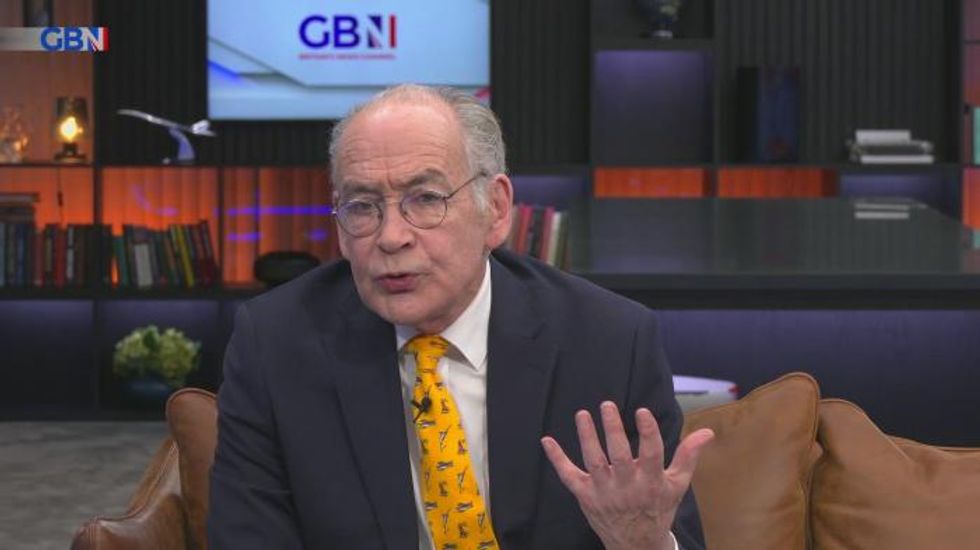Don't Miss
Most Read
Trending on GB News
I went to boarding school because my dad was in the services and didn’t want me chopping and changing school every couple of years as he and mum moved from one RAF station to the next.
I used to tick off the days to the holidays, with mounting excitement.With just two or three weeks to go to the Christmas holidays, I wonder how many children - and parents - are doing the same today.
I wonder what their hopes and fears are for the new term starting in January. The pandemic has torn into virtually every aspect of life these last two years - from the ultimate loss of loved ones to the irritation of not being able to meet up with friends, for a drink.
Many businesses have been disrupted, others have been lost. And our health service - from GPs to operating theatres - has been turned upside down as medics wrestle with the coronavirus.
For schools, too, it has been a constant drip feed of disruption: shorter hours, full closures, online learning, ‘bubbles’, and whole classes sent home because one child - or a teacher - tests positive.
While failed businesses may rise from the ashes, and the NHS finds new and better ways of doing things in the future, for our children, there’s no fresh start.Education is like a conveyor belt: our children are only 7, 8, 10 or 18 once.
If they miss a part of their education, teachers can offer extra lessons, out of hours learning, and stuff to read and work on in their ‘downtime’.
That, in itself, is disruptive to a child’s development where downtime is important too - time with friends, with family or just chilling.And for teachers, also the victims of disruption, its a burden; a burden many embrace but, lets be honest, not all.
And Heads - or school leaders - have to organise it all as they try to keep their establishments afloat.Then along comes OFSTED to see how they’re doing.
We’ve reports of unsympathetic episodes and brutal assessments - some, I am sure, merited.. others, well, it makes you wonder.
So, what is to be done? No simple answers but as we inch to the end of the calendar year and the mid-point in the school year, we thought we’d ask.
My own view is that it is one of those rare occasions where a fundamental re-think might be worth considering. We’ve a new team at the Department for Education, a thoughtful chairman of the education select committee and a brilliant prescription for catch-up from one of the country’s leading educationalists, Sir Kevan Collins. Let them all sit down, as soon as possible, and seek what they might just agree on for 2022.
Aims, objectives and identifiable outcomes.With those outcomes to hand, urge, and urge again, the Chancellor to find the money Sir Kevan said would give the latest number for children the best chance of being back on track by next year.Embrace parents and guardians in the debate - there’s a mighty network of PTAs out there!
And engage with school leaders and teachers themselves. Whether the Unions are up for that is a matter for them but I now there are many formal and informal groups, outside the realms of organised labour, whose sole objective is to make education better for the largest number of children.
As for OFSTED, the guardians of standards in our schools, it really is time to think again.The greatest possible license should be given for the experience and disruption of the pandemic.
They should work with schools on what needs to be done to make them better.Now is not a time for an unsympathetic sudden arrival, any more than it is a time for a nod and wink hint the they’ll be along next week.
And, yes, I would put what teachers teach and how they teach it on the agenda.
The world is already different and the pandemic has added new and complex variables to the life these youngsters will face when they emerge into it.
And the best possible practices in teaching shouldn’t only be available to those who can pay £30,000 a year - and more - for it: they should be instilled in all at College and University, and be available to all in every school.
A bit of a fresh start, then; and as soon as possible. 200 words, please; only write on one side of the paper.. and I’d like your answers by the end of term.
With that, I’ll ring the bell for break time.









